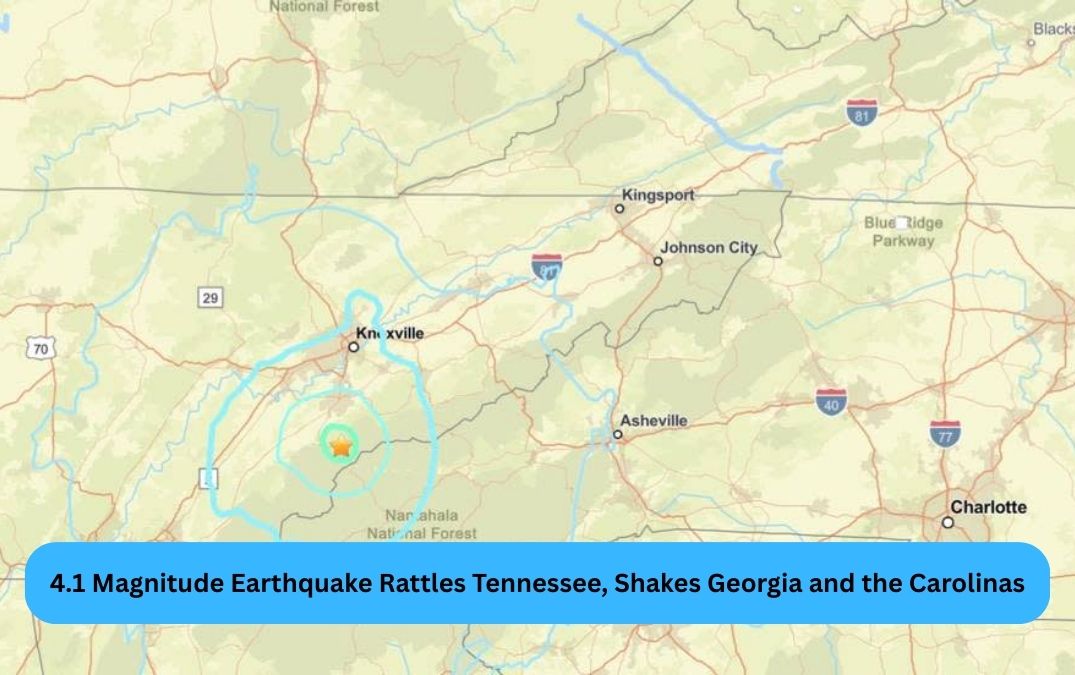A 4.1 magnitude earthquake struck eastern Tennessee on Saturday morning, shaking homes and startling residents across Georgia, North Carolina, and South Carolina.
According to the U.S. Geological Survey (USGS), the quake’s epicenter was located roughly 13 miles from Greenback, Tennessee, about 30 miles south of Knoxville. The tremor occurred at around 9:00 a.m. local time and was initially recorded as a 3.5 magnitude, but later upgraded to 4.1 after further analysis.
Reports quickly flooded in from affected areas, including Atlanta and parts of western North Carolina, with more than 23,000 people submitting responses to the USGS within the first hour.
“It Woke Up the Whole House”
Jason Pack, a former FBI agent turned crisis communications expert, described the moment the earthquake hit his Knoxville-area home. “The walls started shaking, the rumble was loud, and the dog started barking,” Pack said. “You expect tornadoes or floods here, not earthquakes.”
Despite being relatively minor, Pack noted the event was a stark reminder to be prepared: “Even small quakes are warnings. If you’re inside, remember to drop, cover, and hold on. If outside, stay away from buildings.”
Shaking Felt in Georgia
In Braselton, Georgia, Gabriela Reilly and her husband were making breakfast when they felt their house shake. “Our ceiling fan started swinging for about 10 seconds,” she said. “I thought it was a plane overhead, but my husband knew it was an earthquake.”
No Injuries or Major Damage Reported
Fortunately, no significant injuries or structural damage have been reported. The USGS estimates a 5% chance of a magnitude 4 or greater aftershock in the coming week.
Why Earthquakes Travel Farther in the East
The Eastern Tennessee Seismic Zone is one of the most active regions in the southeastern U.S., stretching across Tennessee, Georgia, and Alabama. Notably, in December 2018, a 4.4 magnitude quake in Decatur, Tennessee, was felt all the way to Atlanta.
According to USGS spokesperson Ayesha Davis, earthquakes in the eastern U.S. tend to affect wider areas due to the region’s geological structure. “Seismic waves travel more efficiently here, which is why more people feel even small quakes,” she explained.












